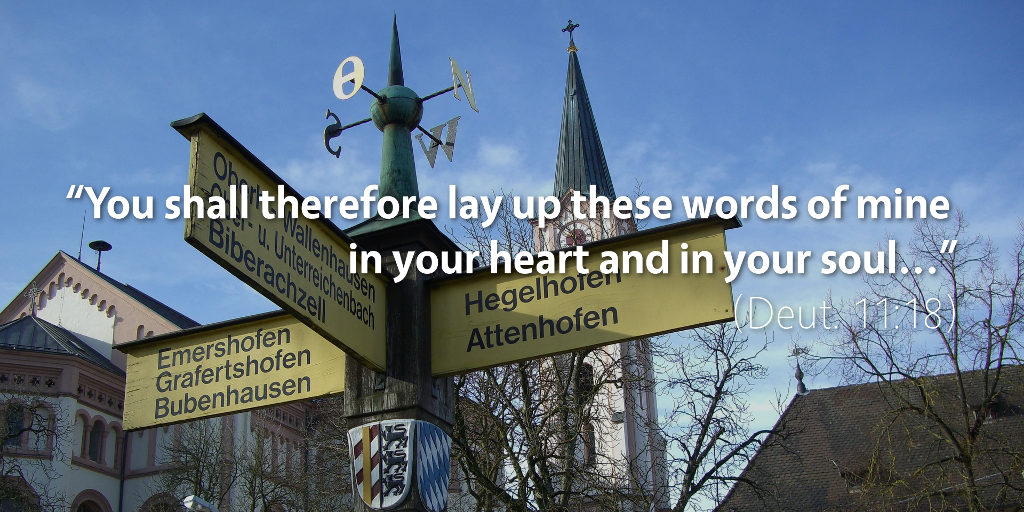Bible Readings for June 7th
Deuteronomy 11 | Psalms 95–96 | Isaiah 39 | Revelation 9
By the time of Jesus, the signs and frontlets that Moses wanted to see bound to the eyes and hands of Israelites (Deut. 11:18) had largely become an outward show of hypocrisy. Jesus explicitly condemned the Pharisees for the way they wore their signs and frontlets (in Greek, “phylacteries”) to gain attention, saying, “They do all their deeds to be seen by others. For they make their phylacteries broad and their fringes long” (Matt. 23:5). The Pharisees no longer used their phylacteries as a tool for keeping the words of the living God front and center in their lives but for showing off their own righteousness to everyone else.
But that doesn’t mean the original intent for the frontlets was bad or poorly conceived. Moses wants desperately to avoid a situation where the Israelites forget the great works that Yahweh has done for them, turning instead to worship the false gods that the nations living in the land of Canaan up to this point have served (Deut. 10:16–17).
Not only did Yahweh bring his people out of the land of Egypt through signs and wonders, with a mighty hand and an outstretched arm, but he brought them through the Red Sea as they were pursued by Egyptians (Deut. 11:2–4). Even more, Yahweh swallowed up Dathan and Abiram (Deut. 11:6), who challenged Moses’s leadership along with Korah (Num. 16). And now Yahweh is about to lead his people into a land so fertile that they will not need to irrigate it, as they had done in Egypt, but a land flowing with milk and honey that Yahweh himself tends as a master gardener (Deut. 11:8–12).
So, Moses commands the people to remind themselves the story of what Yahweh has done for them again and again. They should bind the story physically to their bodies, teach the story to their children, and write the story on their doorposts and gates (Deut. 11:18–20).
And in this way, God’s people would “therefore lay up these words of mine in your heart and in your soul” (Deut. 11:18). All of these physical reminders were for the sake of sinking the story deeply into their hearts and souls. Like circumcision, these frontlets, doorpost inscriptions, and gate writings were all physical signs pointing to a deeper spiritual reality, as we talked about in yesterday’s meditation.
Can you be a hypocrite with a phylactery? Absolutely.
But do we need physical reminders to remind us again and again of spiritual realities? Absolutely. This is why Jesus gave us baptism and the Lord’s Supper, as well as membership in local congregations of believers—to remind us again and again of the story.
Have these signs, then, become sources of hypocrisy for you, or do you cherish them as special resources for bringing you repeatedly back into the story of Jesus’ life, death, and resurrection?
Podcast: Play in new window | Download (4.9MB) | Embed
Subscribe: Apple Podcasts | RSS | More

Scripture quotations are from The Holy Bible, English Standard Version copyright © 2001 by Crossway Bibles, a division of Good News Publishers. Used by permission. All rights reserved.


